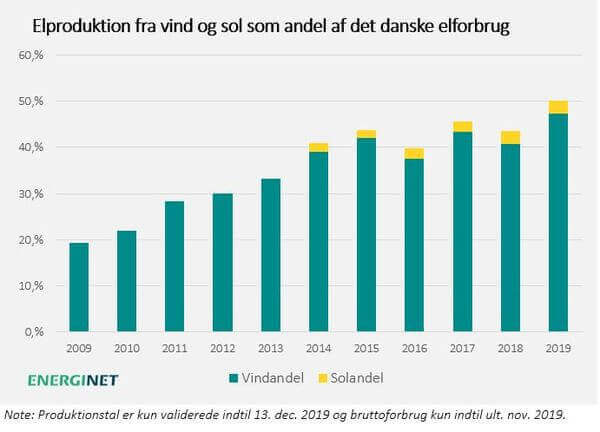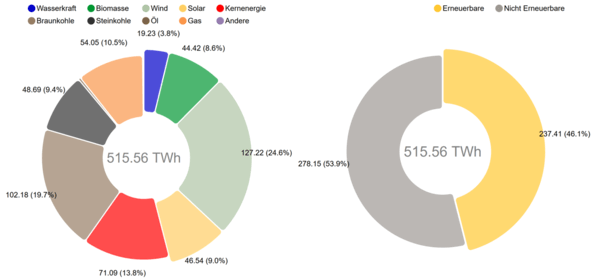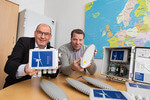News Release from windfair.net
Wind Industry Profile of
Ray of Light from Europe
Denmark claims the top spot: wind power accounted for 47 percent of Danish electricity consumption in 2019, according to grid operator Energinet, citing preliminary data. In 2018 the share was still 41 percent. The previous record was 43 percent reached in 2017.
The new record is partly due to the completion of the Horns Rev 3 offshore wind farm, as Jan Hylleberg, CEO of the Danish association Wind Denmark, explained in Danish media. On the other hand, a higher wind volume last year ensured that wind energy accounted for a large share of the electricity mix.

Image: Energinet
The UK could report a record, too: For the first time, the British produced more energy from CO2-neutral sources than from fossil fuels. 48.5 percent of the electricity came from wind farms, solar and nuclear power, while coal, gas, oil and diesel generated 43 percent. Biomass accounted for 8.5 percent, according to National Grid.
National Grid CEO John Pettigrew told the Guardian: "As we enter a new decade, this truly is a historic moment and an opportunity to reflect on how much has been achieved."
However, there is a catch to the figure, as nuclear energy also accounts for 17 percent of the total. Although nuclear energy is carbon-neutral - i.e. it doesn't produce any emissions - it is not environmentally friendly because of the radioactive waste and safety and health risks.
Another record in 2019 comes from Germany, where 46 percent of electricity comes from renewable sources - not including nuclear power. For the first time, this puts them ahead of fossil fuels in total, which came to 40 percent.

Image: Fraunhofer ISE
In 2019, wind power produced approx. 127 TWh (an increase of 15.7 percent), making it the strongest energy source in Germany for the first time, as announced by Fraunhofer ISE. At the same time, it was pointed out that due to political misconduct, the construction of new wind turbines was lower than ever before.
All in all, there are small rays of light in the fight against climate change, even if the current news situation looks different.
- Author:
- Katrin Radtke
- Email:
- press@windfair.net
- Keywords:
- Europe, CO2, UK, Denmark, Germany, wind, electricity, energy, renewable energy, share, nuclear, coal, fossil, fuel

























